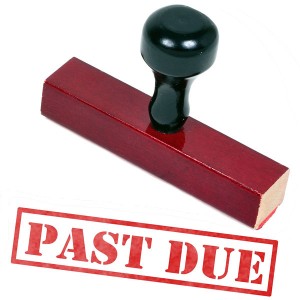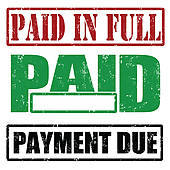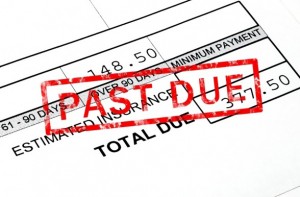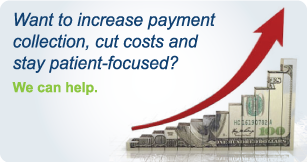It is no secret that dental practices deal with far more dental bad debt and unpaid accounts, in comparison to other medical professionals. With this said there are steps which can be taken, and there are things which can be done to help reduce the amount of dental bad debt which your practice deals with on an annual basis.
Dental Bad Debt

These are a few steps which can be taken, to help reduce or eliminate the dental bad debt your office sees annually, and to avoid potential overdue accounts in the future when taking on new patients.
1. Gather The Right Information:
Your office should make it a regular practice to collect certain information when taking on new patients. From DOB, to address, insurance information, phone numbers, driver’s license, email, and social security numbers. The more you learn about a patient, and the more ways in which you can reach them and collect from them, the less likely it is their bill will go into collections and turn into dental bad debt.
2. Personal Identification:
Make it a regular practice to photocopy an ID. From a driver’s license to social security number and other photo documents – having this information will help eliminate the debate as to whether or not the individual in question (in the photo) is the one that owes your practice any money that could turn into dental bad debt.
3. Consent Forms and Treatment Plans:
Make sure payments sign consent forms for all work done and total payment amounts for all work done. This will eliminate the possibility that at a later date they state they did not consent to certain work. Further, detail the treatment plans, cost, and payment options, and have them sign all the paperwork. Doing so leaves no questions as to whether or not they understood what work was to be done, or how much it would cost. It leaves you with a paper trail, and ensures patients can’t say they didn’t agree to certain work at a later date.
4. Collect Early:
If you do allow patients to set up a payment plan, collect as much as possible up front. Whether it is 50% or more, or whether you set up other payment plan amount options up, make sure patients pay something, so that you don’t lose the entire amount if they aren’t capable of paying the rest of their bill at a later date.
5. Insurer Information:
If patients are insured, let patients know what portion of their bill will be covered. As a dental practice your staff knows what is and isn’t covered, and how much an insurer will cover. Let the patient know how much they are responsible for, and make sure they consent to, and sign all paperwork, which ensures they will be paying that amount. If a patient doesn’t agree, they should first speak to their insurer, so that you aren’t stuck with an unpaid account at a later date, and your practice doesn’t have to suffer from additional unpaid collection accounts or dental bad debt.
6. Notify Early:
Send notification accounts out early. Rather than wait 60 days to send out a bill, send it after 30 days. The sooner you notify patients, and the more notifications they get, the higher the chances are they will pay on account. Text, leave messages, call often; do everything possible to get in touch with patients, and to get them to pay the bill which they owe.
7. Discount Options:
Many patients are more receptive to doing work (especially costly work) when they receive a discount. So, if they pay the bill early, give them a percentage discount on the total cost. It not only creates incentive for them to pay early, it also lessens the possibility that your dental practice is going to be stuck with yet another dental bad debt account for unpaid bills.
Dental Bad Debt
Ready to find the right dental bad debt collection agency?
Save time, money and aggravation by hiring a professional who can help you collect some (or all) of your outstanding revenue.
Click the button below and get a free dental bad debt collection agency quote today. After all, you can keep doing what you’re doing (and hope for a different result), or you can work with a collection agency that can help you recover what’s rightfully yours.

 When Is The Right Time?
When Is The Right Time?
 Contact Patients On Your Behalf:
Contact Patients On Your Behalf: We understand that handling unpaid accounts is possibly one of the most difficult undertakings a dental office deals with. Often, this interferes with the large number of other daily responsibilities and puts your billing staff into uncomfortable positions that could create a legal liability for your practice. Better patient self pays are just making the problem worse. In case you’ve a backlog of dental patients from the last few years that have not paid you then we are your best alternative in pursuing these delinquencies.
We understand that handling unpaid accounts is possibly one of the most difficult undertakings a dental office deals with. Often, this interferes with the large number of other daily responsibilities and puts your billing staff into uncomfortable positions that could create a legal liability for your practice. Better patient self pays are just making the problem worse. In case you’ve a backlog of dental patients from the last few years that have not paid you then we are your best alternative in pursuing these delinquencies.